Creating an opportunity to drive products for billions of users, few companies can offer the wide latitude, sheer size, and access to data that a product manager position at Google can. Google hires approximately 45 APMs per year across various offices in the United States as well worldwide despite thousands and thousands of applications.
The APM Program, the first of its kind, allows the company to not only develop in-house talent rather than having to interview scores of industry professionals years down the line. Allowing for the creation of tight-knit APM communities the program allows new recruits to experience a variety of products and technologies in various locations and industries.
Google’s hiring process has many levels and validation requirements, something essential to such a large company hoping to scale their teams but maintain the quality of their employees. Thus, even candidates with referrals have an offer rate of less than 5%. While the Google interview process is extremely tough, obtaining a PM position at the company is achievable with the correct preparation.

Week 0
Submit your resume and get referrals.
Week 2
Initial phone screen with a recruiter. Covers behavioral and resume-based questions.
Week 4
Phone interview with a PM covering general product questions, usually centered around a theoretical problem.
Week 7
Five 45-minute onsite interviews: four product questions with PMs and one technical question (more system design than coding) with an engineer. You’ll also have lunch with a PM, where you can ask questions in a more casual setting. The lunch interview isn’t usually graded, but treat it like a real interview just to be safe.
Week 8
Take-home assignment.

Product Sense is tested throughout the Google interview process to see if you can turn a big ambiguous problem space into a great product that solves user problems and creates value. Google interviews are trained to pay particular to the creativity, scalability, and user empathy depicted in candidate’s responses.
Pro tip: Google doesn't actually ask questions about Google very often because the interviewer knows way more about the company then you do, so it's unfair.
Design the web user experience for Lyft.

As a company that owns a search engine, Google PMs have access to an unprecedented amount of data. Analytical questions are used to assess whether candidates can accurately choose data, analyze it, and utilize it to drive forward successful products.
Pro tip: Estimation questions are way more common than metrics questions at Google.

Product managers are often touted as “mini-CEOs.” That is partially true in that PMs get considerable influence in shaping the product vision. Strategy interview questions are meant to assess if candidates are able to zoom out from the micro level product details and think big picture business strategy.
Unlock more premium Google PM interview videos for free

Google’s behavioral interview questions are designed to not only make sure candidates are good product managers, but are a cultural fit for the “Googley-ness” the company prides itself on. Google wants employees that are multi-talented and able to add to the company in different ways, have a clear vision for where they hope to drive the company, and cognizant of their faults despite their accomplishments. Google’s behavioral questions are arguably the easiest part of the interview but far from the least important. Take them as a chance to stand out by having memorable stories prepared beforehand.
Pro tip: Google asks behavioral questions less than most companies, but all interviewers are asked to evaluate you on googleyness. When answering these questions, put your team first, empathize with users, and communicate respectfully.

Google has the highest technical bar for PMs in FAANG. Unlike Facebook and Amazon, the search giant specifically screens for technical aptitude, especially for lower level hires where they expect PMs to be able to get in the weeds with engineers to help guide the more granular technical details of the product. These technical requirements ease up a bit for more senior product leadership roles as then the more micro-level technical issues will likely be delegated to an APM or Project/Program Manager.

Created with the help of 9 current and former Google PMs, including 2 GPMs and 4 Hiring Managers
13 hours of video lessons
Google Company Level Strategic Overview & Monthly Updated Most Common PM Interview Questions
Lifetime access
Tax deductible expense under continuous education category (USA)
In our Flagship Google PM Interview course, you will start off by learning Google’s Ten Year Strategy from insiders so you can begin to think from the perspective of a Google exec. We’ll go deep on hot product areas like Google Cloud, Assistant, YouTube and more!
Then, we will give you a refresher on the art of interviewing covering everything from whiteboarding to body language. We’ll go over what types of estimation, design, technical, and behavioral questions you are most likely to get asked at Google and then walk you through the concrete things that Google interviewers are taught to look for in your response for each question type. We’ll also show you tons of mock interview examples of 10 out of 10 answers with expert interviewer commentary along the way.
Finally, we will share a monthly updated list of interview questions that our team members and past customers have actually gotten during their recent Google PM interviews. With this course, you can take luck out of the equation for getting your dream PM job at Google!
The ultimate resource for earning “Strong Hire” ratings and converting your Google interviews into a top-bracket PM offer letter without getting down-leveled. Now includes materials for Google's new Craft & Execution interviews.


Parker Chun got the job at

Associate Product Manager
Hands down the best PM prep resource I've come across. With Product Alliance’s Hacking the PM Interview course, I was able to land my dream job as a PM intern at Google!
In our Flagship Google PM Interview course, you will start off by learning Google’s ten-year strategy from insiders so you can begin to think from the perspective of a Google executive. We’ll go deep on hot product areas like Google Cloud, Assistant, YouTube and more!
Then we’ll go over what types of estimation, design, strategic, and behavioral questions you are most likely to get asked at Google and then walk you through the concrete things that Google interviewers are taught to look for in your response for each question type. We’ll also show you tons of mock interview examples of 10 out of 10 answers with expert interviewer commentary along the way.
The course also includes materials on Google's newly-added Craft & Execution PM interview.
Finally, we will share a monthly updated list of interview questions that our team members and past customers have actually gotten during their recent Google PM interviews. With this course, you can take luck out of the equation for getting your dream PM job at Google!


6,000+
total customers
.gif)
17 hours
of HD video lessons

38%
avg. increase in TC
Google’s product strategy centers on user-first design, AI-driven innovation, and a connected ecosystem that blends free, ad-supported tools with paid enterprise services to drive engagement and growth.

Google’s product strategy centers on user-first design, AI-driven innovation, and a connected ecosystem that blends free, ad-supported tools with paid enterprise services to drive engagement and growth.

Google’s product strategy centers on user-first design, AI-driven innovation, and a connected ecosystem that blends free, ad-supported tools with paid enterprise services to drive engagement and growth.



How to flawlessly answer Prioritization & Tradeoffs questions

Sample 10/10 answer: Imagine if Microsoft Teams saw a 50% drop in new downloads. How would you figure out what happened?

Sample 10/10 answer: A Snapchat app redesign increases time spent but reduces Snaps sent & stories shared. Should you ship it?


How to flawlessly answer Product Launch questions

Sample 10/10 answer: How would you decide which country to next launch Amazon Prime 1- or 2-day shipping in?

Sample 10/10 answer: Suppose you're Marriott's CEO and found that a hack just exposed the data of 5 million guests. What would you do?
Sample 10/10 answer: Suppose you're Marriott's CEO and found that a hack just exposed the data of 5 million guests. What would you do?

Sample 10/10 answer: Suppose you're Marriott's CEO and found that a hack just exposed the data of 5 million guests. What would you do?
Sample 10/10 answer: Suppose you're Marriott's CEO and found that a hack just exposed the data of 5 million guests. What would you do?
Sample 10/10 answer: You promised Best Buy that you'd launch the latest version of Google's Pixel Buds in September, but the engineering team says it won't be ready until December. What do you do?
Sample 10/10 answer: You promised Best Buy that you'd launch the latest version of Google's Pixel Buds in September, but the engineering team says it won't be ready until December. What do you do?

Sample 10/10 answer: You promised Best Buy that you'd launch the latest version of Google's Pixel Buds in September, but the engineering team says it won't be ready until December. What do you do?
Sample 10/10 answer: You promised Best Buy that you'd launch the latest version of Google's Pixel Buds in September, but the engineering team says it won't be ready until December. What do you do?

Sample 10/10 answer: Tell me about a time when you earned the trust of a person or group.
Sample 10/10 answer: Tell me about a time when you earned the trust of a person or group.

Sample 10/10 answer: Tell me about a time when you earned the trust of a person or group.
Sample 10/10 answer: Tell me about a time when you earned the trust of a person or group.
Sample 10/10 answer: Imagine if the designer on your team wasn't meeting expectations. How would you proceed?
Sample 10/10 answer: Imagine if the designer on your team wasn't meeting expectations. How would you proceed?

Sample 10/10 answer: Imagine if the designer on your team wasn't meeting expectations. How would you proceed?
Sample 10/10 answer: Imagine if the designer on your team wasn't meeting expectations. How would you proceed?

Sample 10/10 answer: Tell me about a tech trend you find interesting or an emerging technology you're following.
Sample 10/10 answer: Tell me about a tech trend you find interesting or an emerging technology you're following.

Sample 10/10 answer: Tell me about a tech trend you find interesting or an emerging technology you're following.
Sample 10/10 answer: Tell me about a tech trend you find interesting or an emerging technology you're following.
Sample 10/10 answer: How do generative adversarial networks (GANs) work? How can you use them to make deepfakes?
Sample 10/10 answer: How do generative adversarial networks (GANs) work? How can you use them to make deepfakes?

Sample 10/10 answer: How do generative adversarial networks (GANs) work? How can you use them to make deepfakes?
Sample 10/10 answer: How do generative adversarial networks (GANs) work? How can you use them to make deepfakes?
Sample 10/10 answer: In Washington and Oregon, the average driver rating on Uber is higher than Lyft. But when combined, Lyft's is higher. How is this possible?
Sample 10/10 answer: In Washington and Oregon, the average driver rating on Uber is higher than Lyft. But when combined, Lyft's is higher. How is this possible?

Sample 10/10 answer: In Washington and Oregon, the average driver rating on Uber is higher than Lyft. But when combined, Lyft's is higher. How is this possible?
Sample 10/10 answer: In Washington and Oregon, the average driver rating on Uber is higher than Lyft. But when combined, Lyft's is higher. How is this possible?

Google’s product strategy centers on user-first design, AI-driven innovation, and a connected ecosystem that blends free, ad-supported tools with paid enterprise services to drive engagement and growth.


The secret playbook for mastering Google's Estimation interview (and its follow-up questions)

The #1 big mistake to avoid in Google's Estimation interviews
The 20+ exact Estimation questions you're likely to be asked

Sample 10/10 answer: Estimate the total weight of all the mail & packages that the USPS delivers in the US on an average day.
Sample 10/10 answer: Estimate the total weight of all the mail & packages that the USPS delivers in the US on an average day.

Sample 10/10 answer: Estimate the total weight of all the mail & packages that the USPS delivers in the US on an average day.
Sample 10/10 answer: Estimate the total weight of all the mail & packages that the USPS delivers in the US on an average day.
Sample 10/10 answer: Estimate Apple Music's annual revenue from subscriptions in the US.
Sample 10/10 answer: Estimate Apple Music's annual revenue from subscriptions in the US.

Sample 10/10 answer: Estimate Apple Music's annual revenue from subscriptions in the US.
Sample 10/10 answer: Estimate Apple Music's annual revenue from subscriptions in the US.
Sample 10/10 answer: Estimate the customer acquisition cost and lifetime value of Spotify users.
Sample 10/10 answer: Estimate the customer acquisition cost and lifetime value of Spotify users.

Sample 10/10 answer: Estimate the customer acquisition cost and lifetime value of Spotify users.
Sample 10/10 answer: Estimate the customer acquisition cost and lifetime value of Spotify users.

Google’s product strategy centers on user-first design, AI-driven innovation, and a connected ecosystem that blends free, ad-supported tools with paid enterprise services to drive engagement and growth.

The 30+ exact Strategy questions you're likely to be asked

Sample 10/10 answer: Should PayPal enter the Web3 market by building a crypto/blockchain product?
Sample 10/10 answer: Should PayPal enter the Web3 market by building a crypto/blockchain product?

Sample 10/10 answer: Should PayPal enter the Web3 market by building a crypto/blockchain product?
Sample 10/10 answer: Should PayPal enter the Web3 market by building a crypto/blockchain product?
Sample 10/10 answer: Should Netflix build a native co-watching experience?
Sample 10/10 answer: Should Netflix build a native co-watching experience?

Sample 10/10 answer: Should Netflix build a native co-watching experience?
Sample 10/10 answer: Should Netflix build a native co-watching experience?
Sample 10/10 answer: Marriott's CEO has given you a year and 50 employees to reimagine the hotel business. What do you do?
Sample 10/10 answer: Marriott's CEO has given you a year and 50 employees to reimagine the hotel business. What do you do?

Sample 10/10 answer: Marriott's CEO has given you a year and 50 employees to reimagine the hotel business. What do you do?
Sample 10/10 answer: Marriott's CEO has given you a year and 50 employees to reimagine the hotel business. What do you do?
Sample 10/10 answer: If you had to eliminate one Apple product, what would it be and why?
Sample 10/10 answer: If you had to eliminate one Apple product, what would it be and why?

Sample 10/10 answer: If you had to eliminate one Apple product, what would it be and why?
Sample 10/10 answer: If you had to eliminate one Apple product, what would it be and why?

Sample 10/10 answer: Imagine Microsoft is making an Asana competitor. What value proposition would you choose?
Sample 10/10 answer: Imagine Microsoft is making an Asana competitor. What value proposition would you choose?

Sample 10/10 answer: Imagine Microsoft is making an Asana competitor. What value proposition would you choose?
Sample 10/10 answer: Imagine Microsoft is making an Asana competitor. What value proposition would you choose?
Sample 10/10 answer: How can Dropbox differentiate itself from Box, Google Drive, Microsoft OneDrive, etc.?
Sample 10/10 answer: How can Dropbox differentiate itself from Box, Google Drive, Microsoft OneDrive, etc.?

Sample 10/10 answer: How can Dropbox differentiate itself from Box, Google Drive, Microsoft OneDrive, etc.?
Sample 10/10 answer: How can Dropbox differentiate itself from Box, Google Drive, Microsoft OneDrive, etc.?

Sample 10/10 answer: You've developed a teleportation device. What are some of the use cases and markets for the product?
Sample 10/10 answer: You've developed a teleportation device. What are some of the use cases and markets for the product?

Sample 10/10 answer: You've developed a teleportation device. What are some of the use cases and markets for the product?
Sample 10/10 answer: You've developed a teleportation device. What are some of the use cases and markets for the product?
Sample 10/10 answer: Pitch a non-tech/low-tech idea for all of Ford's cars.
Sample 10/10 answer: Pitch a non-tech/low-tech idea for all of Ford's cars.

Sample 10/10 answer: Pitch a non-tech/low-tech idea for all of Ford's cars.
Sample 10/10 answer: Pitch a non-tech/low-tech idea for all of Ford's cars.
Sample 10/10 answer: How would you keep Facebook Marketplace safe and prevent scams?
Sample 10/10 answer: How would you keep Facebook Marketplace safe and prevent scams?

Sample 10/10 answer: How would you keep Facebook Marketplace safe and prevent scams?
Sample 10/10 answer: How would you keep Facebook Marketplace safe and prevent scams?
Google’s product strategy centers on user-first design, AI-driven innovation, and a connected ecosystem that blends free, ad-supported tools with paid enterprise services to drive engagement and growth.

The 25+ exact Googleyness & Leadership questions you're likely to be asked
The 25+ exact Googleyness & Leadership questions you're likely to be asked

The 25+ exact Googleyness & Leadership questions you're likely to be asked
The 25+ exact Googleyness & Leadership questions you're likely to be asked


Sample 10/10 answer: Tell me about a time you had to overcome an obstacle.
Sample 10/10 answer: Tell me about a time you had to overcome an obstacle.

Sample 10/10 answer: Tell me about a time you had to overcome an obstacle.
Sample 10/10 answer: Tell me about a time you had to overcome an obstacle.
Sample 10/10 answer: Tell me about a time you had to make a really tough decision.
Sample 10/10 answer: Tell me about a time you had to make a really tough decision.

Sample 10/10 answer: Tell me about a time you had to make a really tough decision.
Sample 10/10 answer: Tell me about a time you had to make a really tough decision.
Sample 10/10 answer: Tell me about a time you didn't have the resources to do something but got it done anyway.
Sample 10/10 answer: Tell me about a time you didn't have the resources to do something but got it done anyway.

Sample 10/10 answer: Tell me about a time you didn't have the resources to do something but got it done anyway.
Sample 10/10 answer: Tell me about a time you didn't have the resources to do something but got it done anyway.
Sample 10/10 answer: Tell me about a time you created an innovative product.
Sample 10/10 answer: Tell me about a time you created an innovative product.

Sample 10/10 answer: Tell me about a time you created an innovative product.
Sample 10/10 answer: Tell me about a time you created an innovative product.
Sample 10/10 answer: Tell me about a time when you built something outside of work.
Sample 10/10 answer: Tell me about a time when you built something outside of work.

Sample 10/10 answer: Tell me about a time when you built something outside of work.
Sample 10/10 answer: Tell me about a time when you built something outside of work.
Sample 10/10 answer: Describe an instance where you had to make an important decision.
Sample 10/10 answer: Describe an instance where you had to make an important decision.

Sample 10/10 answer: Describe an instance where you had to make an important decision.
Sample 10/10 answer: Describe an instance where you had to make an important decision.

Sample 10/10 answer: How do you stay up-to-date with the tech industry? How do you get inspired with new ideas?
Sample 10/10 answer: How do you stay up-to-date with the tech industry? How do you get inspired with new ideas?

Sample 10/10 answer: How do you stay up-to-date with the tech industry? How do you get inspired with new ideas?
Sample 10/10 answer: How do you stay up-to-date with the tech industry? How do you get inspired with new ideas?

Google’s product strategy centers on user-first design, AI-driven innovation, and a connected ecosystem that blends free, ad-supported tools with paid enterprise services to drive engagement and growth.


The AI-First Philosophy

Core Strategic Pillars

Why This Matters (The Big Picture)


DeepMind’s Integration with Google AI

DeepMind’s AI Projects

Ethical AI Initiatives


Gemini – The Multimodal Maestro

Bard – The Generative Powerhouse

The Gemini-Bard Symbiosis

The Ethical Tightrope


AI in Google Search – Beyond Keywords

AI in Google Workspace – The Co-Pilot Revolution

AI in Consumer Products – The Everyday Magic

AI in Google Cloud – The Enterprise Brain


Quantum Computing 101

Google Quantum AI – Betting on the Future

The Quantum Race – Google vs. IBM vs. NASA

Collaborations – Building a Quantum Ecosystem

Google’s Quantum Future – Beyond the Hype


Ethical AI – Guardrails in the Code

AI for Sustainability – Cooling the Planet with Code

The AGI Vision – Building Benevolent Superintelligence
39 video hrs
300+ pages
Lifetime access
Tax-deductible expense under the US's continuing education category
$3000
$3000
$700
3:45:23 remaining










